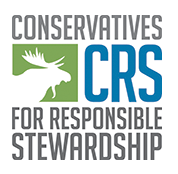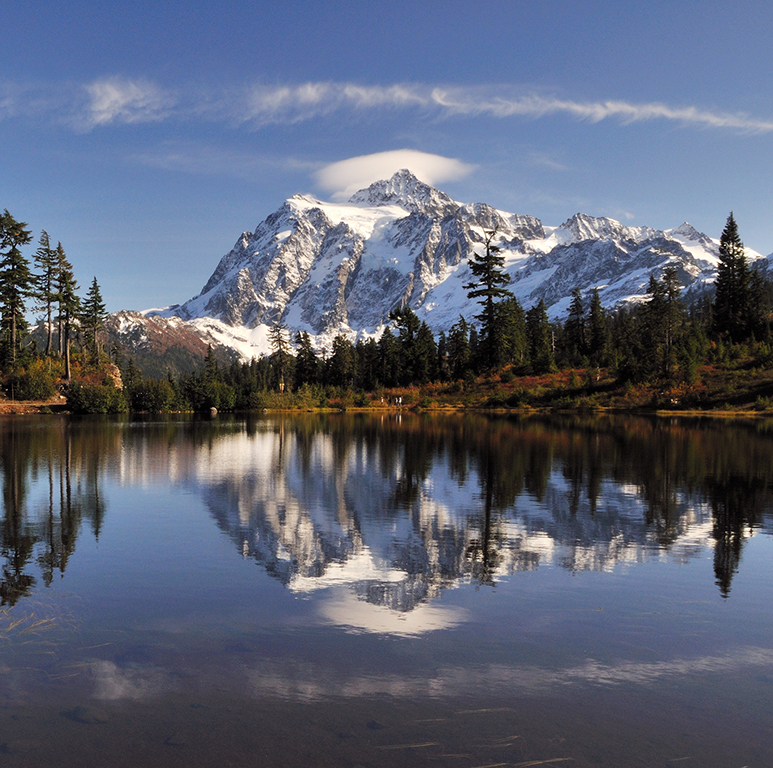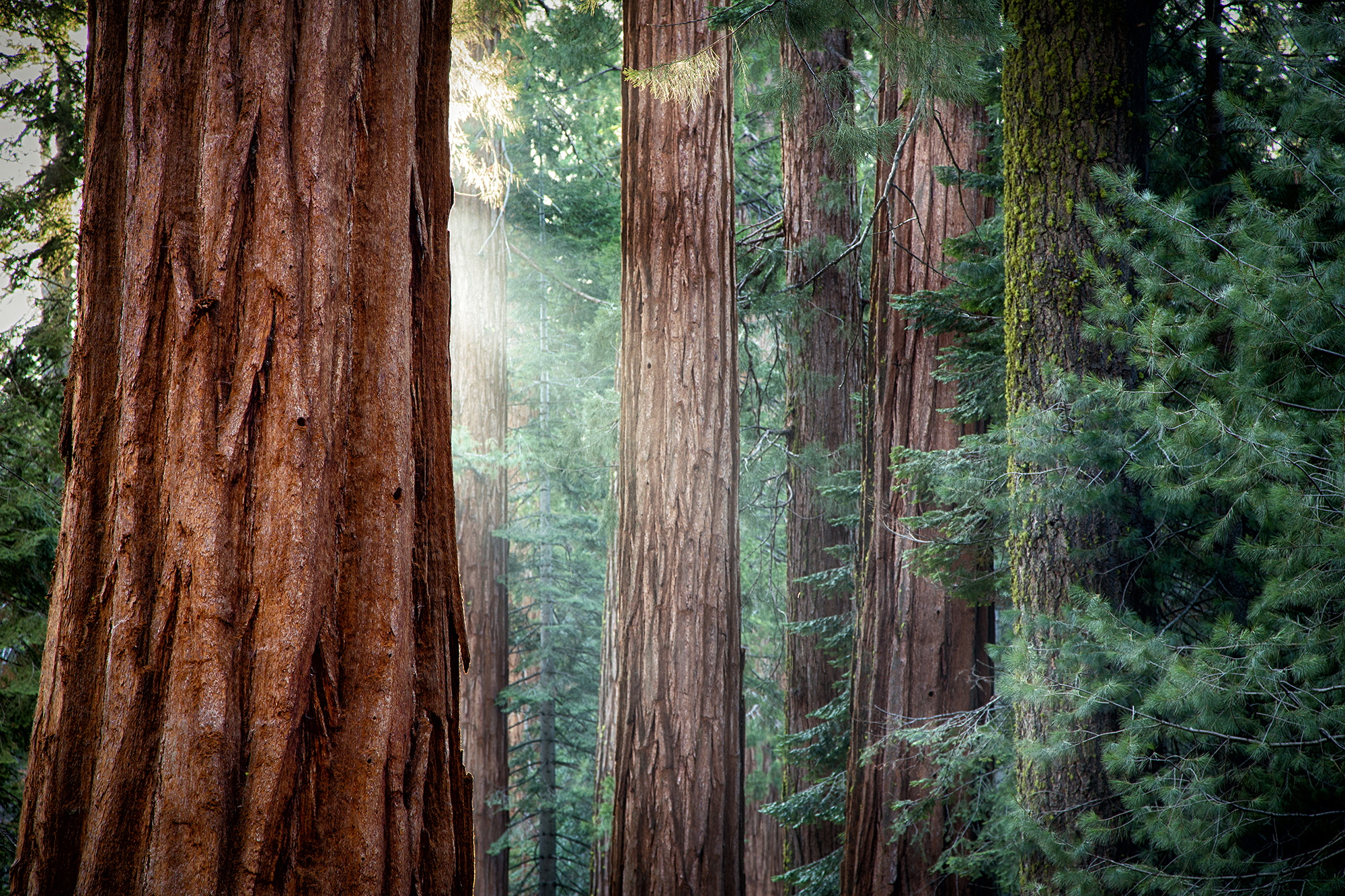Public Land Takeover Bid is NOT Conservative
“I just have to believe that with love for our natural heritage and a firm resolve to preserve it with wisdom and care, we can and will give the American land to our children, not impaired, but enhanced.” Ronald Reagan
The current campaign by the American Lands Council (ALC) and its allies in Congress to discard and surrender our nation’s cherished public lands—which belong to all Americans—seeks to abandon a conservative land ethic that has served our nation well for more than a century. It would replace the principled stewardship of Theodore Roosevelt, Herbert Hoover and Ronald Reagan with radical notions intent on mortgaging the natural heritage of all Americans, present and future.
The ALC pitch is that public lands in the West, including our national forests, monuments, conservation lands and wildlife refuges, would be better managed by the states. Yet it does not take much digging to discover that this effort is not at all about the management of natural landscapes. It is about exploiting resources for short-term financial gain.
ALC’s literature is rife with claims about existing land protections “stifling economic opportunity” and “locking up access” to valuable resources. Ken Ivory, the organization’s president, frequently complains of vast mineral wealth being “locked up in federal lands.”
The group conveniently ignores economic studies showing that protected public lands contribute billions annually to regional economies and create hundreds of thousands of private sector jobs—all of which is threatened by the ALC agenda. Also ignored by ALC and its allies is the important role national public lands play in safeguarding water supplies for downstream states.
A GOP Legacy
We owe our nation’s public land legacy to the vision and conservative stewardship ethic of its greatest leaders. And it is no accident that most of those leaders were Republicans.
Theodore Roosevelt, after seeing America’s God-given natural bounty being “thoughtlessly destroyed” by parochial interests, acted upon his sense of moral duty to unborn generations and pursed polices to safeguard our natural heritage. As the great conservative author Russell Kirk noted, “There is nothing more conservative than conservation.”
Other Republican Presidents, Taft, Harding, Coolidge, Hoover, Eisenhower, Nixon, Ford, Reagan, Bush, all followed in Roosevelt’s footsteps and added to our nation’s natural endowment. These national public lands are their legacy; a testament to the prudence, foresight, and genuine conservatism that characterized their service to our nation.
The ALC and its allies seek to dismantle that legacy. They represent the same “reckless” and “short-sighted” attitudes that spurred Roosevelt to action more than a century ago.
Squandered Assets
Utah and Nevada—the states with the most activity in favor of a takeover—have gotten rid of millions of acres that were granted to them upon statehood. Utah was given 7.5 million acres, but today has less than half of that. And of the 2.7 million acres originally granted to Nevada, only a scant 3000 acres remain.
These Western states, as well as others, have a history of selling off or giving away their trust lands. There is nothing about this current takeover effort to indicate that new land acquisitions would be treated any differently.
A bill introduced earlier this year in the Nevada legislature epitomizes the radical attitude behind ALC’s efforts. It contained unconstitutional language seizing federally managed public lands and requiring counties to give away development rights on those seized lands to private interests. The bill, which failed to pass, would have also prohibiting the U.S. government from enforcing any federal laws or regulations within the state.
Fiscal Stewardship
Our nation’s public lands represent a long-term investment by past and present generations of Americans. This investment—whether in the form of tax dollars, fees, LWCF funds, private donations or volunteer labor—has been made to protect our nation’s natural heritage for the enjoyment and benefit of all Americans.
Turning this endowment over to individual states for disposal would be breaking a clear commitment, violating the public trust and throwing away a valuable long-term investment.
Such land transfers would also deprive the treasury of present and future revenue streams from mineral leases, royalties, user fees and timber sales. And contrary to claims by ALC, there is no reasonable expectation that the states receiving such lands would be willing or able to fight wildfires on their own, or shoulder the expense of doing so.
Not Just a Western Issue
America’s national parks, forests, wildlife refuges and conservation lands belong to all of us. A constituent in Tennessee, North Carolina, or Illinois has just as much a right to enjoy—hike, camp, bike, fish, hunt etc.—on Western public lands as anyone else. American’s all across the nation depend on these lands for vacations, outdoor recreation, education and research.
This shared ownership of America’s public lands has strong nationwide appeal. A poll conducted earlier this year by Public Opinion Strategies found that even in Western states, an overwhelming majority of voters favor public lands that belong to the country as a whole. This even holds true among Tea Party supporters in the states polled (Arizona, Colorado, Montana, New Mexico, Utah, and Wyoming).
With the vast majority of Americans strongly supporting our national public lands, the ALC’s radical position is swimming upstream against public opinion—irrespective of political affiliation.
This is not an issue that can be ceded to a handful of Western lawmakers who are allied with ALC, and who have an agenda that runs contrary to the wishes of most Americans.
“Our Great Moral Responsibility”
Thanks to the stewardship ethic and vision of Theodore Roosevelt and other great leaders, our nation’s public lands are the birthright of every American, both present and future. Safeguarding that birthright is a moral obligation
Roosevelt characterized that obligation like this:
“Our duty to the whole, including the unborn generations, bids us restrain an unprincipled present-day minority from wasting the heritage of these unborn generations. The movement for the conservation of wild life and the larger movement for the conservation of all our natural resources are essentially democratic in spirit, purpose, and method.”
But it was President Reagan who probably said it best:
“What is a conservative after all but one who conserves, one who is committed to protecting and holding close the things by which we live…And we want to protect and conserve the land on which we live — our countryside, our rivers and mountains, our plains and meadows and forests. This is our patrimony. This is what we leave to our children. And our great moral responsibility is to leave it to them either as we found it or better than we found it.”
Those concepts of stewardship and duty are just as valid and wise today as they were when these great conservative leaders expressed them.
The ALC agenda turns that conservative and uniquely American stewardship ethic on its head, and if enacted, it would throw away a priceless natural endowment that has taken more than a century to build.





